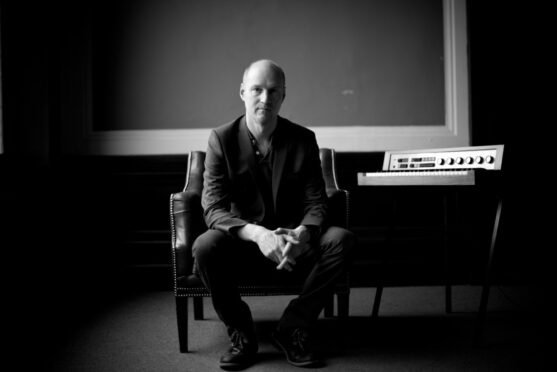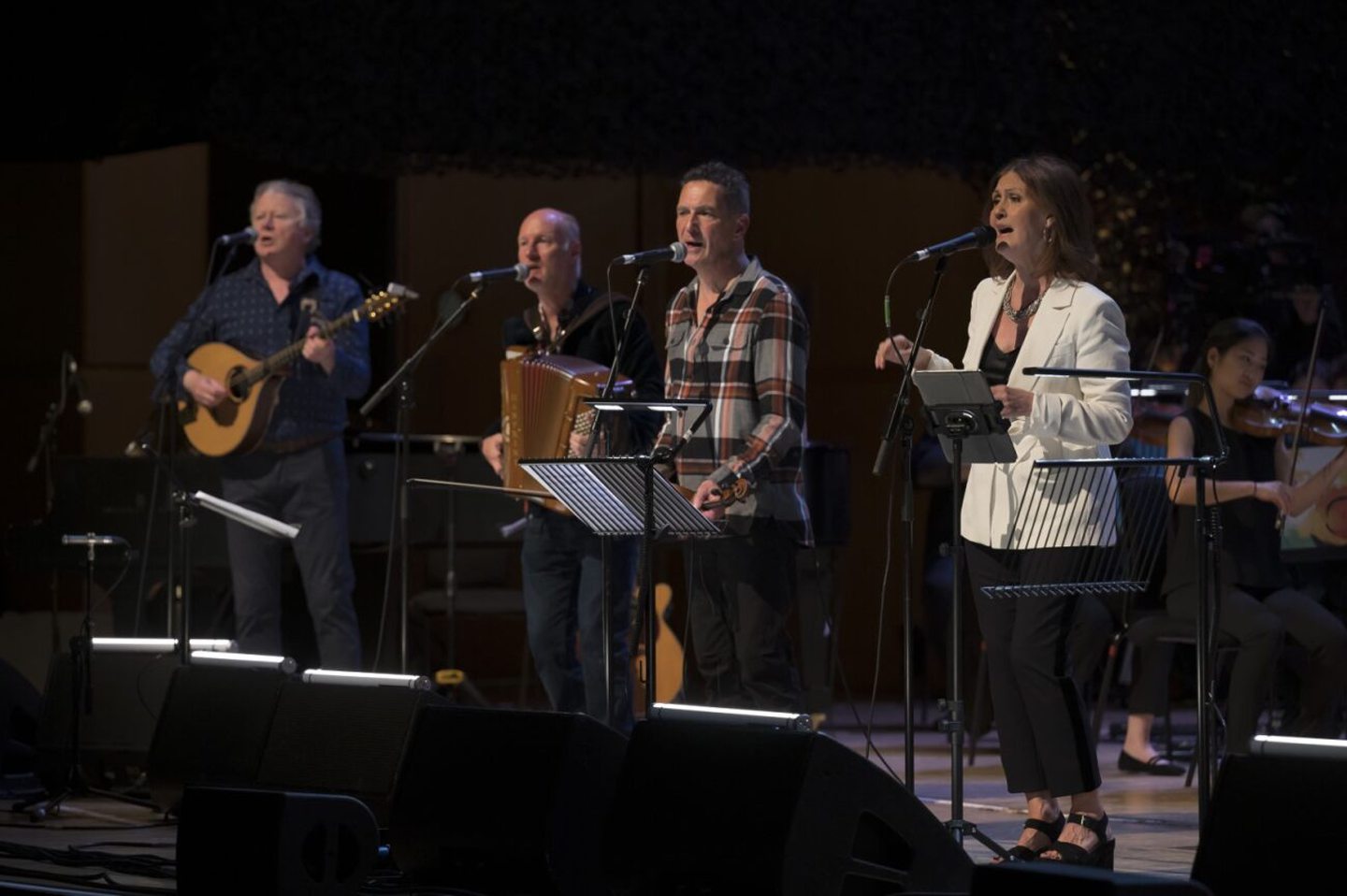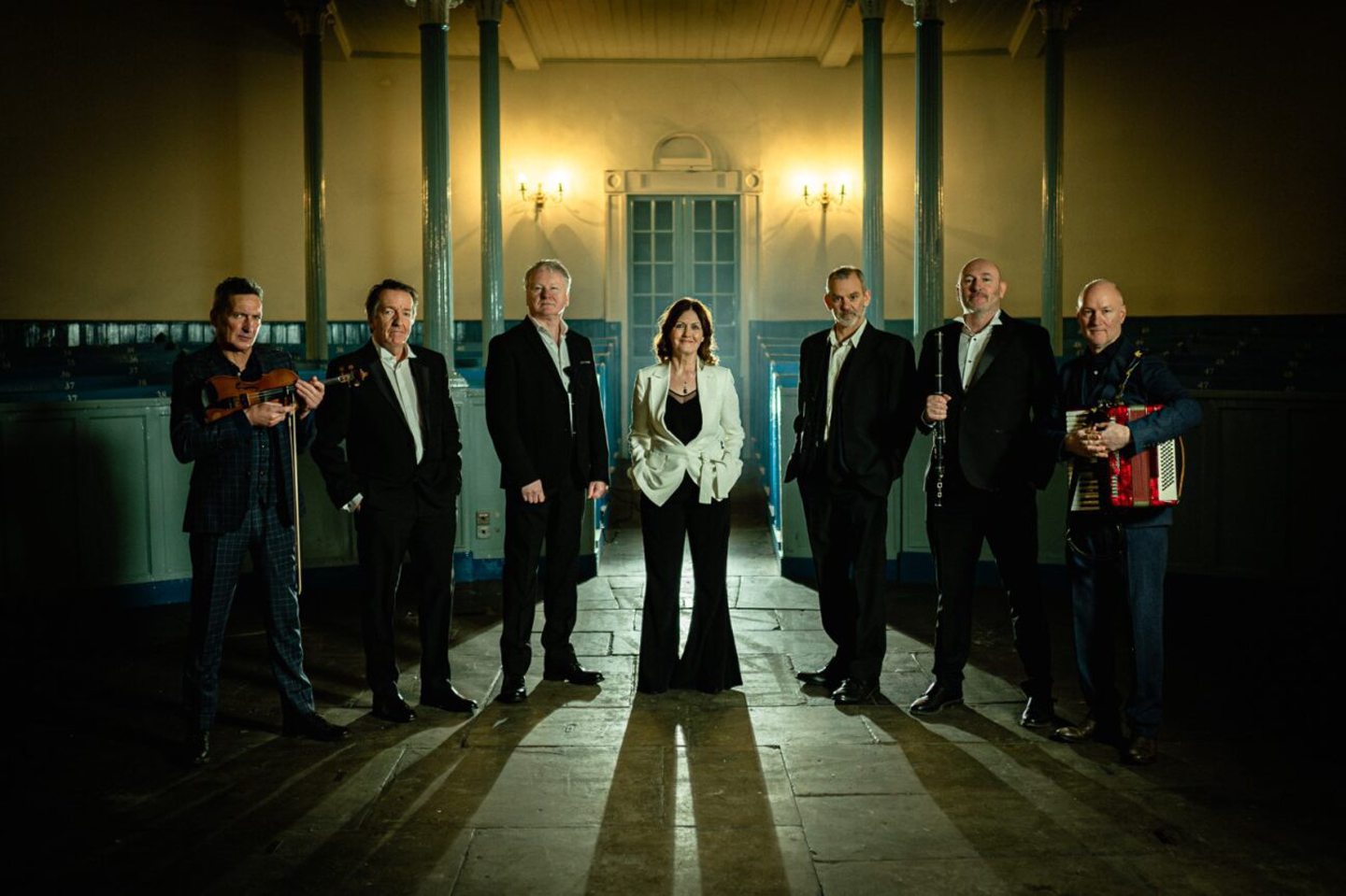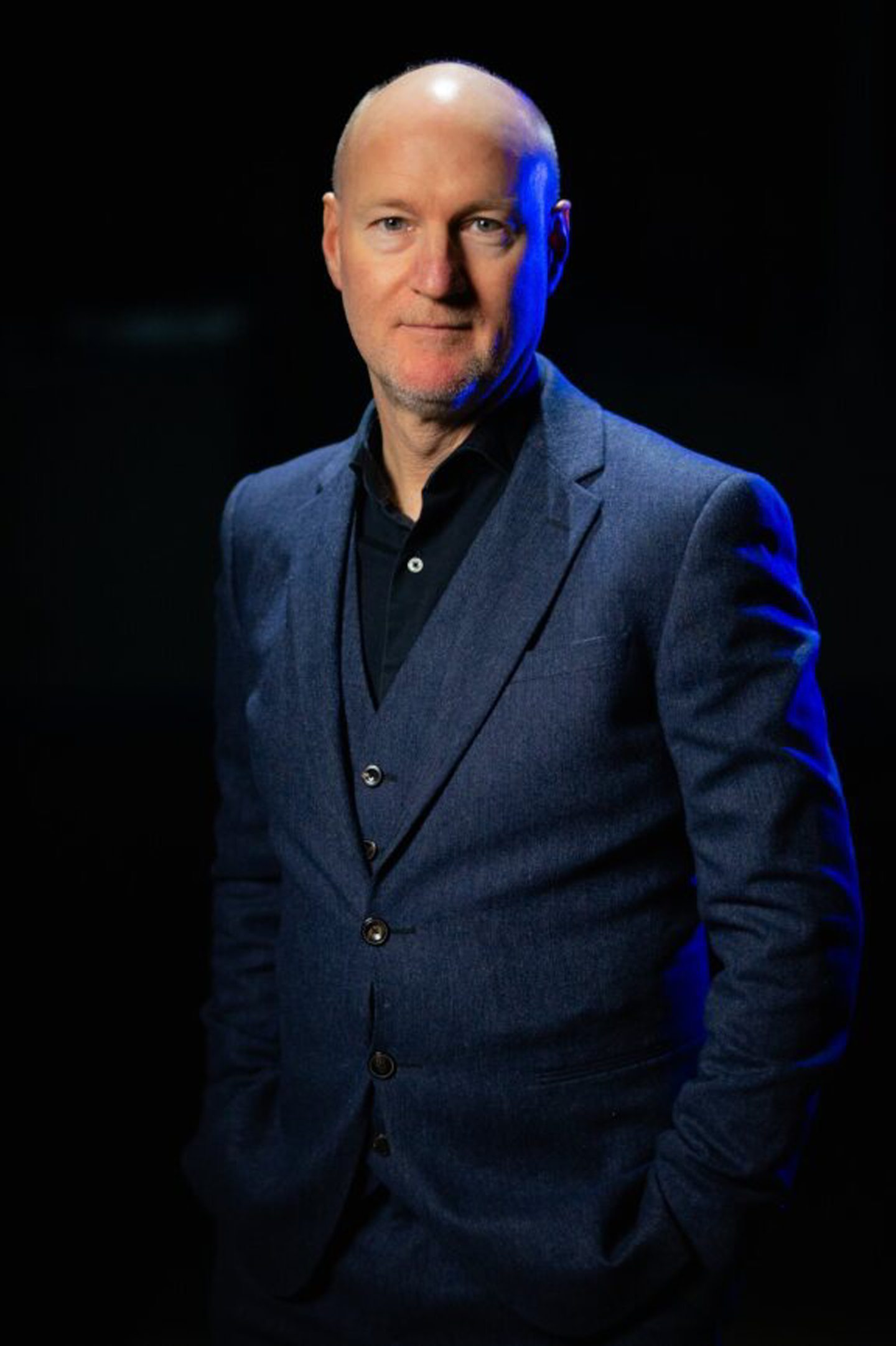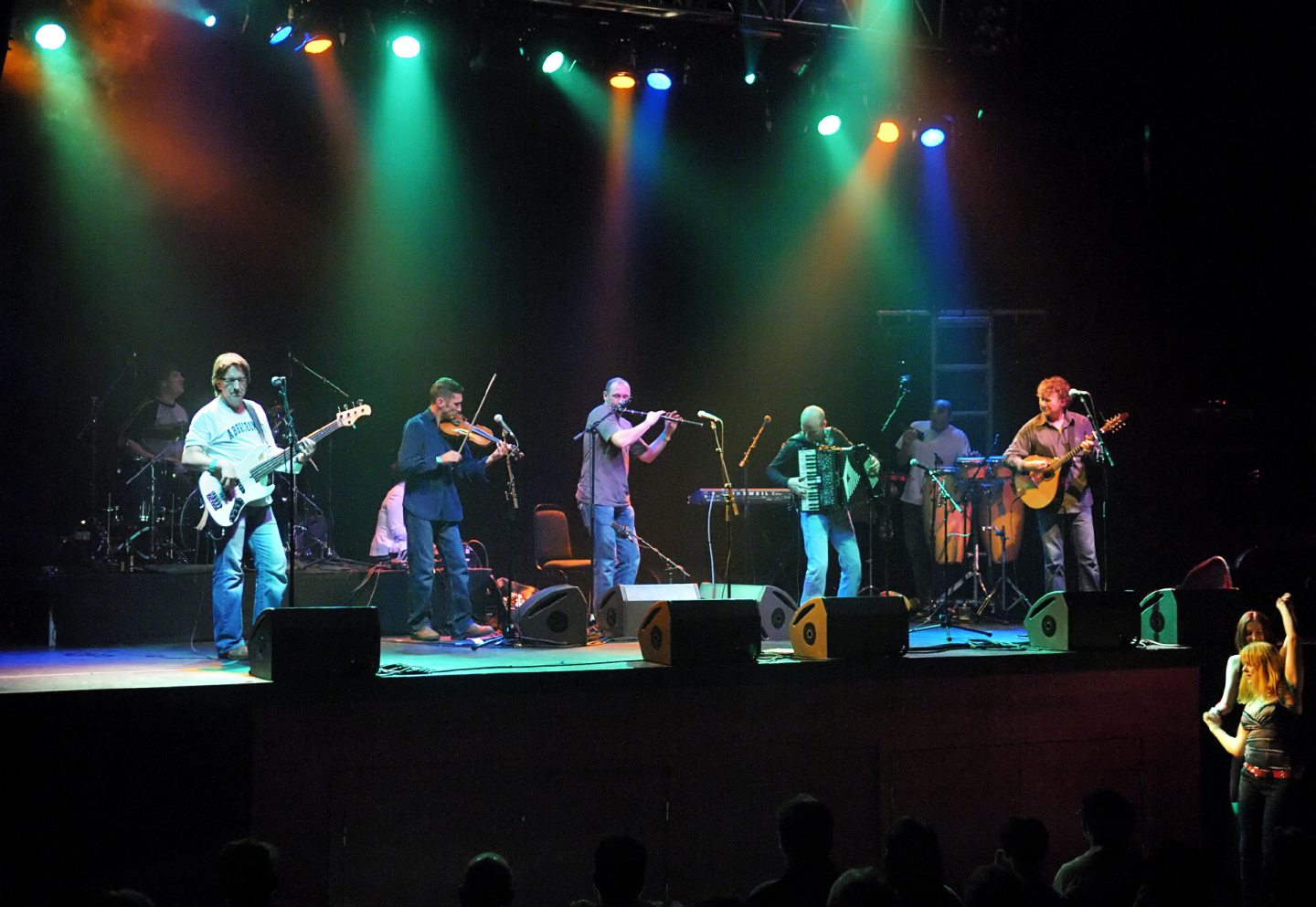Donald Shaw promised his parents he was just taking a year out from his studies before going on to “do something like electronic engineering.”
After all, how much mileage could there be in a group of Scottish traditional musicians venturing out into a world beyond the Highlands and pursuing a professional career?
That was in 1984 and it’s fair to conclude that any initial reservations about the staying power of Capercaillie have been cast into the ether along with Donald’s pledge 40 years ago to join the academic ranks after hitting the road with his buddies.
Capercaillie made pop chart history
At the outset, the band named themselves after the large, rare, and very beautiful Scottish bird to symbolise what they believed would be a triumphant battle against extinction; an echo of their proudly distinctive Gaelic repertoire.
And since then, they have toured more than 30 countries, sold over a million albums, performed in Rob Roy, alongside Liam Neeson and Jessica Lange, and entered the pop charts with Coisich a Ruin – the first Gaelic single to reach the Top 40.
It’s a remarkable story, but there again, Donald is a pretty formidable force of nature in his own right, whether in the company of his colleagues, or as a tirelessly creative presence behind the burgeoning success of the annual Celtic Connections festival.
In addition to pouring his heart into film composition, he has produced and recorded on a dazzling array of albums for artists in all areas of music, and collaborated with an eclectic group of performers ranging from Nanci Griffith and Peter Gabriel to Ornette Coleman, Dulce Pontes, Bonnie Raitt and James Grant.
Good music doesn’t have boundaries
He was musical director for the BAFTA-winning arts show Tacsi, in which he joined forces with more than 200 of the finest musicians in Scotland as diverse as jazz maestro Tommy Smith, piping guru Martyn Bennett and the BT Ensemble.
And, later this month, Capercaillie will release Re-Loved, an album of transcendent new arrangements in conjunction with the BBC Scottish Symphony Orchestra.
It’s a long time since he was sitting in a classroom in Oban, but Donald is still in love with the idea of musicians coming together and brewing up a beautiful noise. Not that he had any notion his life would unfold as it has done in these early stages of his career.
He told me: “It seemed very far-fetched at the start, because there were very few folk bands who could go out and make a living – you had Silly Wizard and Boys of the Lough, but they were the exceptions – so we just wanted to have fun together.
Now there’s an orchestra involved
“This Re-Loved project has been a long time coming for us, maybe even since schooldays when we experienced the beauty and dynamism of an orchestra.
“It was therefore an incredible experience spending time with the great BBC SSO and hearing our music come alive with the power and eloquence of their players.
“It is well recognised the great symphonic composers were influenced by folk melodies – including Beethoven who even arranged Gaelic songs early in his life – so it felt like a very natural journey to take with these traditional songs and tunes.”
In the recent past, many people were sniffy about folk music and there was a perception in some circles that it was a dying strand of Scottish culture, something to be dragged out at weddings, ceilidhs, Burns Suppers and Hogmanay gatherings.
Yet, as Donald relates, such Cassandra-style projections ignored the determination of a disparate collection of groups from across the north of Scotland.
The new sound sparked interest
This aligned with a potent combination of organisations such as Hands up for Trad, the launch of MG Alba and the emergence of a new breed of gifted female singers including Karen Matheson, Julie Fowlis and Eddi Reader who were comfortable in every genre.
Suddenly, these voices were appearing in Hollywood movies and in the pop charts. Then, a youthful generation picked up the baton and ran with it. And with the arrival of Celtic Connections in 1994, there was a platform which brought them all together.
Donald told me: “I’m delighted there has been such a change in attitudes towards folk music in this country. That has really transformed the situation from the 1980s where it felt as if the music didn’t belong to our generation – basically, it was our parents’ music.
“But nowadays, kids are playing clarsach, accordion, fiddle and other instruments across Scotland and it is starting in schools, then so many talented youngsters are going to the Royal Scottish Conservatoire [in Glasgow] and it’s a thriving scene.
Celtic Connections has expanded
“I am also thrilled at how Celtic Connections has blossomed. It’s no longer pigeon-holed as a folk event and that is one of the ways in which it has expanded.
“I’ve always thought of Gaelic music as a form of world music and I regard Celtic Connections as a world music festival which engages with all forms of music.
“There are no barriers, nothing placed in people’s way, and that is one of the reasons why we now have performers travelling from all over the world to Glasgow every year.”
As somebody whose own tastes encompass everything from folk and trad to jazz, rock, classical and anything which captures his imagination, Donald is the ideal figure to be spearheading the seismic shift which has happened in the last couple of decades.
And he highlighted the brand of magic which can flourish when artists park their misconceptions at the door and choose to embrace new sounds and rhythms.
It was an amazing display
He said: “There was one time where Bobby McFerrrin [the American singer of Don’t Worry Be Happy] did a solo concert and walked among 2,000 children at the Royal Concert Hall and got them all singing.
“He asked if he could improvise with some Scottish traditional musicians and suddenly, you had this soul, blues maestro working with them in an amazing way.
“The expressions on their and the kids’ faces were magical. It showed me and everybody there what can happen – and does happen – when you bring musicians together.”
Donald is an internationalist who regularly journeys across the globe, but has never forgotten the lessons learned while he was growing up in Taynuilt.
Originally taught the accordion by his father (he also plays keyboards), he won the All-Britain championship when he was at Oban High School, and that was the catalyst for him to blaze his own trail and orchestrate a truly epic success story.
Music was his first love
Capercaillie’s members may have to streamline their diaries these days, considering how much they’re in demand, but that simply makes their reunions all the sweeter.
He can probably stop worrying about signing up to that electronic engineering course!
Re-Loved will be available on all streaming platforms on May 31.
Five questions for Donald Shaw
- What book are you reading? I’ve two on the go. Pete Irvine’s Scotland the Best and Unapologetic: Why, despite everything, Christianity can still make surprising emotional sense by Francis Spufford.
- Who’s your hero/heroine? Johann Sebastian Bach.
- Do you speak any foreign languages? Pidgin Spanish after years of touring.
- Favourite band or music? As you might understand, it changes over the years, but it has to be folk music. However, I loved The Police as a youngster.
- What’s your most treasured possession? My grandfather’s Bechstein baby grand piano, which goes back to the 1930s.
